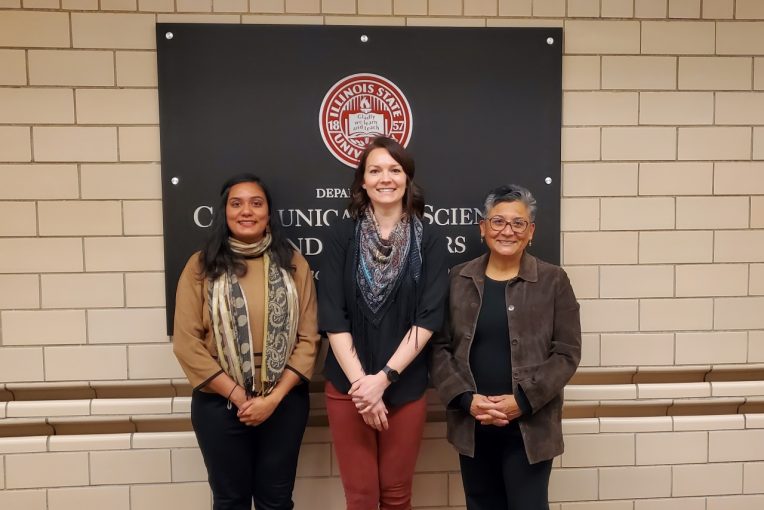Dr. Shraddha Shende was awarded the New Faculty Initiative Grant (NFIG). While working as an audiologist in India, she realized that many of her clients diagnosed with age-related hearing loss complained about communication problems when the listening conditions were noisy, despite having been prescribed state-of-the-art hearing aids. As a result of this observation, she wanted to learn more about the nexus of hearing loss and cognitive science. Hence, her research has focused on the intersection of aging, hearing loss, and cognition.
Currently, projects within her lab are aimed at characterizing executive function changes in older adults with age-related hearing loss, determining the needs of individuals aging with Deafness, and examining a virtual social engagement platform for older adults with and without mild cognitive impairment. Shende will use the NFIG award to collect pilot data on executive function in older adults with different degrees of age-related hearing loss. She will examine executive function in three specific cognitive functions: cognitive flexibility, inhibitory control, and working memory updating.
Dr. Ciera Lorio was awarded the Pre-tenure Faculty Initiative Grant (PFIG). Her experiences as a pediatric speech-language pathologist led her to focus on research projects related to language and literacy development in infants, toddlers, and preschoolers. She examines these areas of development during play, parent-child shared book reading, and other typical family routines. Much of her work also focuses on the use of coaching to expand caregiver knowledge and skills related to support for language and literacy development in young children.
Lorio will use the PFIG award to pilot a professional development program for early intervention providers. This program will support early intervention providers in facilitating reflective conversations during caregiver coaching sessions. She plans to evaluate the effectiveness, acceptability, and feasibility of the program with a group of early intervention providers that currently use caregiver coaching.
Dr. Lidia Huerta was awarded the New Faculty Initiative Grant (NFIG). She pursued a career in speech-language pathology because of an interest in cultivating knowledge and skills in identifying dialectal differences and communication disorders within dialects in the assessment and therapeutic processes. Her primary specialization focuses on understanding and supporting the cultivation of culturally and linguistically responsive care (CLRC) through preservice training of speech-language pathology students.
Her secondary area of specialization is CLRC in speech-language pathology as it relates to service delivery for young (birth to 5 years of age) dual language learners and their families. Huerta will use the NFIG award to explore the utility of an existing CLRC competency measure, students’ growth in CLRC competence over time, and identify potential adaptations for applicability to preservice training in Communication Sciences and Disorders graduate programs.

